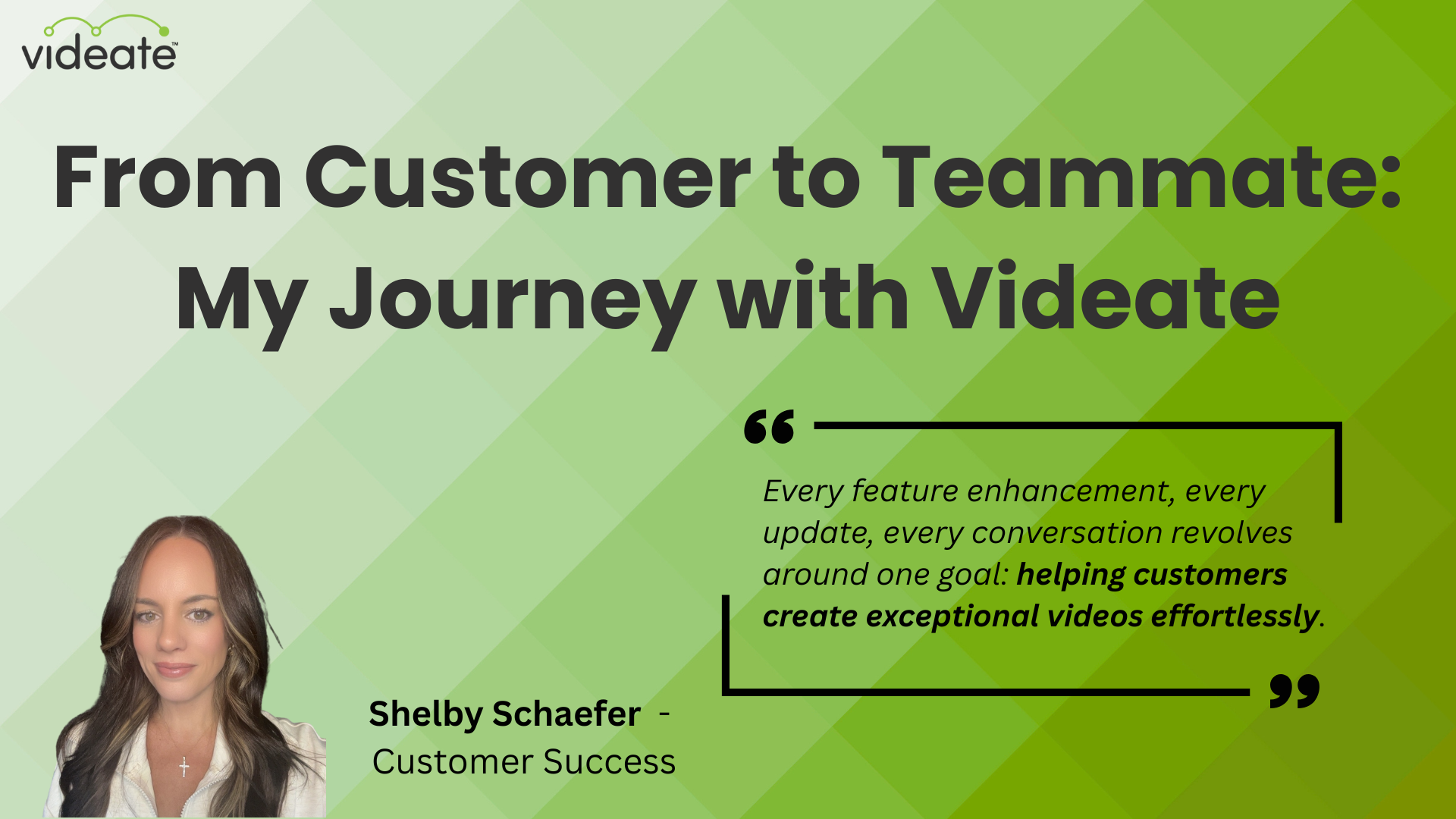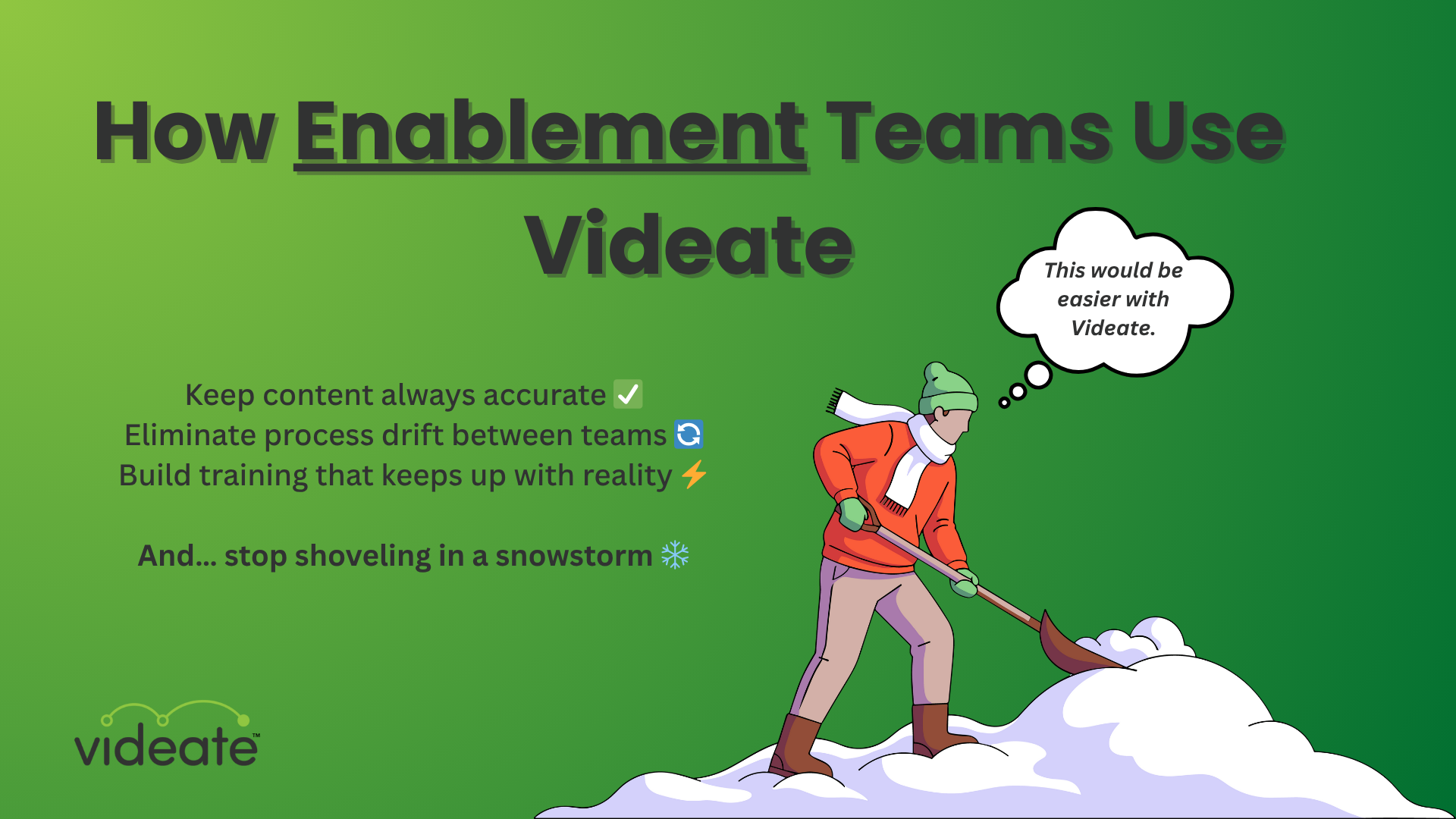
Choosing the right type of video recorder can make a huge difference. From onboarding videos to product tutorials, having the right tool can save hours of production time and ensure your content stays up-to-date.
But which type of recorder should you use?
The two main options are screen recorders and software recorders. On the surface, they might seem similar—both capture video of your product in action.
However, the way they capture your software’s movements is worlds apart.
What is a Screen Recorder?
Screen recorders capture everything happening on your screen the moment you hit record. It's like a regular old camcorder-- or your iPhone camera, if you're not down for nostalgic analogies (or "nostalogies", as I like to call them).
Just like a camera can only capture what's in front of you, a screen recorder can only capture what's on your monitor.
Screen recorders only capture the “surface level” of your software. That means every time your software updates or changes, you have to re-record the entire video.
If you take a selfie with your iPhone (or Polaroid), and then change your outfit, you have to take another photo, right? So every time your software changes its outfit (ie. a button moves or a new feature is added), any videos or screenshots you have taken with a screen recorder need to be manually changed.
What is a Software Recorder?
A software recorder, on the other hand, goes beyond just capturing what’s happening on the screen. Instead of recording what you click on, it records the underlying data of what’s happening within the software.
So if a screen recorder is like a camera taking a selfie of your screen, a software recorder is capturing the actual code interactions. When your software changes its outfit (honestly that's just such a funny visual I now refuse to think of UI changes as anything else), a software recorder like Videate is able to assess exactly what changed on a code level and re-generate videos automatically with those updates in mind.
Benefits of a Software Recorder
With a software recorder like Videate, the pain of manual video re-recording is a thing of the past. Here’s what sets it apart:
-
Automated Updates: When your software changes, the software recorder automatically adjusts the video content, saving you from re-recording.
-
Integrated Script and FX Generation: A software recorder like Videate doesn’t just capture video; it also generates scripts and suggested visual effects based on your actions. This eliminates the need for you to manually write out scripts or specify every action.
-
Complete Video Generation: Software recorders compile a complete video, including voiceover and effects, from start to finish. No need for extra editing.
Side-by-Side Comparison: Screen Recorder vs. Software Recorder
|
Feature |
Screen Recorder |
Software Recorder |
|---|---|---|
|
Captures on-screen actions |
Yes |
No |
|
Captures code-level actions |
No |
Yes |
|
Able to automate video updates |
No |
Yes |
|
Automatically generates scripts and FX |
No |
Yes |
|
Best use case |
One-off recordings |
Scalable SaaS product training videos, Sales Enablement videos, Onboarding videos |
Software Recorders IRL: How Reputation slashed video production time by 90%
Reputation, a reputation management platform, used to need 12-15 hours to produce a single training video. But they found themselves constantly falling behind as their manual video production process couldn’t keep up with regular software changes.
“Our education videos were pretty crucial when it comes to our overall training strategy," said Kasey Kershner, a customer training manager at Reputation. But, they were constantly playing catch-up due to a time-consuming manual video production process. Keeping their videos updated was a huge challenge, leading to a video library that was less than 10% current with their software.
Enter Videate: Using Videate’s software recorder, Reputation was able to shrink video production timelines to a fraction of the old process—creating a complete video in as little as 1 hour.
“Now, when something happens on our platform and something changes, I can just go back into Videate and make a few changes. I get a brand new video that's current within maybe five minutes,” Kershner shared.
With Videate, Reputation can now create and update videos in multiple languages without re-recording or complex editing, reaching a global audience more efficiently than ever.
Reputation's Results:
-
Producing a single video went from 12-15 hours to just 1 hour.
-
Updating a video went from about 4 hours to just 5-10 minutes.
-
Producing high-quality videos now takes a fraction of the time it took to do manually.
“Partnering with Videate was definitely the right decision for us at Reputation. It has been a total game changer in our video creation process.”
>> Read their full case study here
Which recorder should you choose for SaaS video creation?
If you need to create quick, one-off videos that don’t require regular updates, a screen recorder may suffice. But if you’re looking for a solution that can help you scale and maintain an entire video library with minimal effort, a software recorder is the better choice.
For SaaS companies that are always evolving, Videate’s software recorder offers the ability to stay agile, keep training content up-to-date, and avoid the endless cycle of manual re-recording and editing.
Ready to slash your video production time? Book a demo with Videate today and see how our software recorder can revolutionize your video creation process!
.png)
How Customer Success & Education Teams Use Videate



